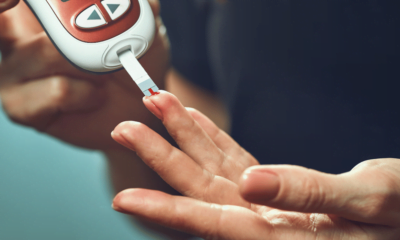A paper in the Brazilian Journal of Psychiatry has examined the potential of the endocannabinoid system to play a part in treating SADs.
Social anxiety disorder (SAD) is a common psychiatric disorder. People with SAD have an excessive fear or anxiety of social situations where they worry their behaviour may cause embarrassment, humiliation or rejection by others. This could be related to performance situations such as public speaking but may also be starting a conversation or socialising at an event. This may cause people to avoid attending events, work or relationships.
The NHS currently lists cognitive behavioural therapy (CBT) or anti-depressant medication as options for treatment with SAD.
Hormone production
The researchers reviewed existing scans of the brain to see if hormone imbalances could be the reason for the development of SAD. They examined dopamine which is responsible for how we feel pleasure, serotonin which stabilises our moods and the stress hormone cortisol.
They wrote: “The monoamine hypothesis and pharmacological approaches suggest that the neurobiologies of depression and anxiety share imbalances in the monoaminergic neurotransmission system.41 In this regard, neuro-molecular positron emission tomography (PET) and single-photon emission computed tomography (SPECT) studies in SAD have largely focused on imaging serotonergic and dopaminergic neurotransmission, based on the reported efficacy of antidepressants.”
Evidence
The authors wrote: “Emerging evidence suggests that the endogenous cannabinoid system, also referred to as the endocannabinoid system (ECS), could play a potential role in the pathophysiology of SAD. This review discusses the known pathophysiological mechanisms of SAD, the potential role of the ECS in this disorder, current drugs targeting the ECS, and the potential of these novel compounds to enhance the therapeutic armamentarium for SAD.”
The researchers concluded that the ECS could be a potential biological pathway in the treatment of SAD and is a promising avenue for developing more therapeutic approaches. They highlighted that there is a lack of human ECS studies or clinical trials which allow for ‘significant gaps in our knowledge.’

Could CBD help?
The ECS involves three core components: endocannabinoids, receptors and enzymes. These receptors can be found throughout the body. Endocannabinoids bind to them to send a signal that the ECS needs to do something.
The main receptors are CB1 found in the central nervous system and CB2 in the peripheral nervous system. Endocannabinoids can bind to either receptor and produce effects depending on where the receptor is located and which one it binds to.
Tetrahydrocannabinol (THC) binds to CB1 or CB2 receptors while it is thought that potentially CBD can influence the receptors. Researchers aren’t sure how it interacts exactly.
A study explored the potential effects of CBD on people with SAD. Participants were given 400 mg of CBD or a placebo. Those given the CBD reported less anxiety than those given the placebo.
Another study on anxiety and sleep also revealed the potential of CBD to help stabilise our moods. The study involved 72 patients with 47 primarily experiencing anxiety and 25 suffering from poor quality sleep. Each person was given 25 milligrams of CBD each day and the majority of participants at 79.2 percent recorded they had lower anxiety while 66.7 percent reported better sleep after just the first month.
However, there is more research needed on both the endocannabinoid system and how CBD interacts with it to help treat SAD.
Read more: Can CBD help me sleep?

 Science5 months ago
Science5 months ago
 Industry6 months ago
Industry6 months ago
 News5 months ago
News5 months ago
 News6 months ago
News6 months ago
 Health5 months ago
Health5 months ago
 Health3 months ago
Health3 months ago
 Science5 months ago
Science5 months ago
 Cannabis explained6 months ago
Cannabis explained6 months ago













